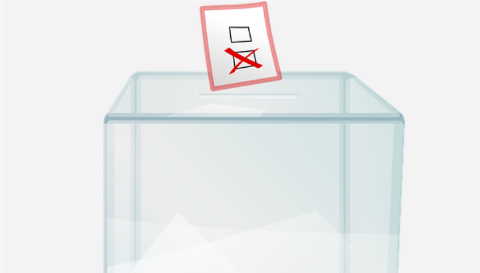Eleven immigrant rights advocates were arrested in Minneapolis early Wednesday morning, while staging an hours-long sit-in at Mayor Jacob Frey’s office.
Protesters with the Minnesota Immigrant Rights Action Committee (MIRAC) went to Mayor Frey’s office Tuesday afternoon, bringing petitions outlining their demands for stronger immigration sanctuary policies. Activists said they had reached out to Frey multiple times and invited him to a press conference with their organization, and said they’d received no response.
Montana Hirsch was one of the protesters arrested.
“He’s not gotten back to us, and it’s one week before the election, so we decided that we couldn’t wait any longer to hear from him,” Hirsch said.
Hirsch and the other sit-in participants were arrested just after midnight. Protest organizers and a Minneapolis Police Department spokesperson said security personnel warned sit-in participants that they would be trespassing after the building closed at 6 p.m. Officers arrested protesters several hours later and brought them to Hennepin County Jail. All 11 were released Wednesday morning.
The protesters are pushing for new policies to strengthen the city’s separation ordinance, which bars city employees from enforcing federal immigration laws. Organizers point to chaos that unfolded in a federal operation on June 3, and a city auditor’s recommendation to update the separation ordinance.
MIRAC’s proposals include barring federal immigration personnel from entering city property, banning law enforcement from wearing face coverings and preventing local law enforcement from assisting ICE officers with crowd control in situations such as protests.
Frey’s three leading challengers in the mayoral race — Omar Fateh, Jazz Hampton and DeWayne Davis — support MIRAC’s policy proposals.
Mayor Frey said he’s open to considering some of the ideas to strengthen the city’s current separation ordinance, but cited concerns with specific proposals in the organization’s petition — primarily one calling for local police to arrest federal agents if they do not comply with other proposed rules banning face coverings.
“It would be illegal, and they’ve got bigger guns than we do,” Frey said.
And, he said, he worries that policy would provoke federal interference in the city.
“[President] Trump clearly wants an open war with Democratically run cities, and this would give it to him on a silver platter,” Frey said.
Hirsch said MIRAC organizers want to see the mayor take steps towards implementing those policies he does agree with, and address organizers directly.
“I think there’s things he could do today — and yesterday — that he’s not doing,” Hirsch said. “This sounds like empty promises to me without real action.”







